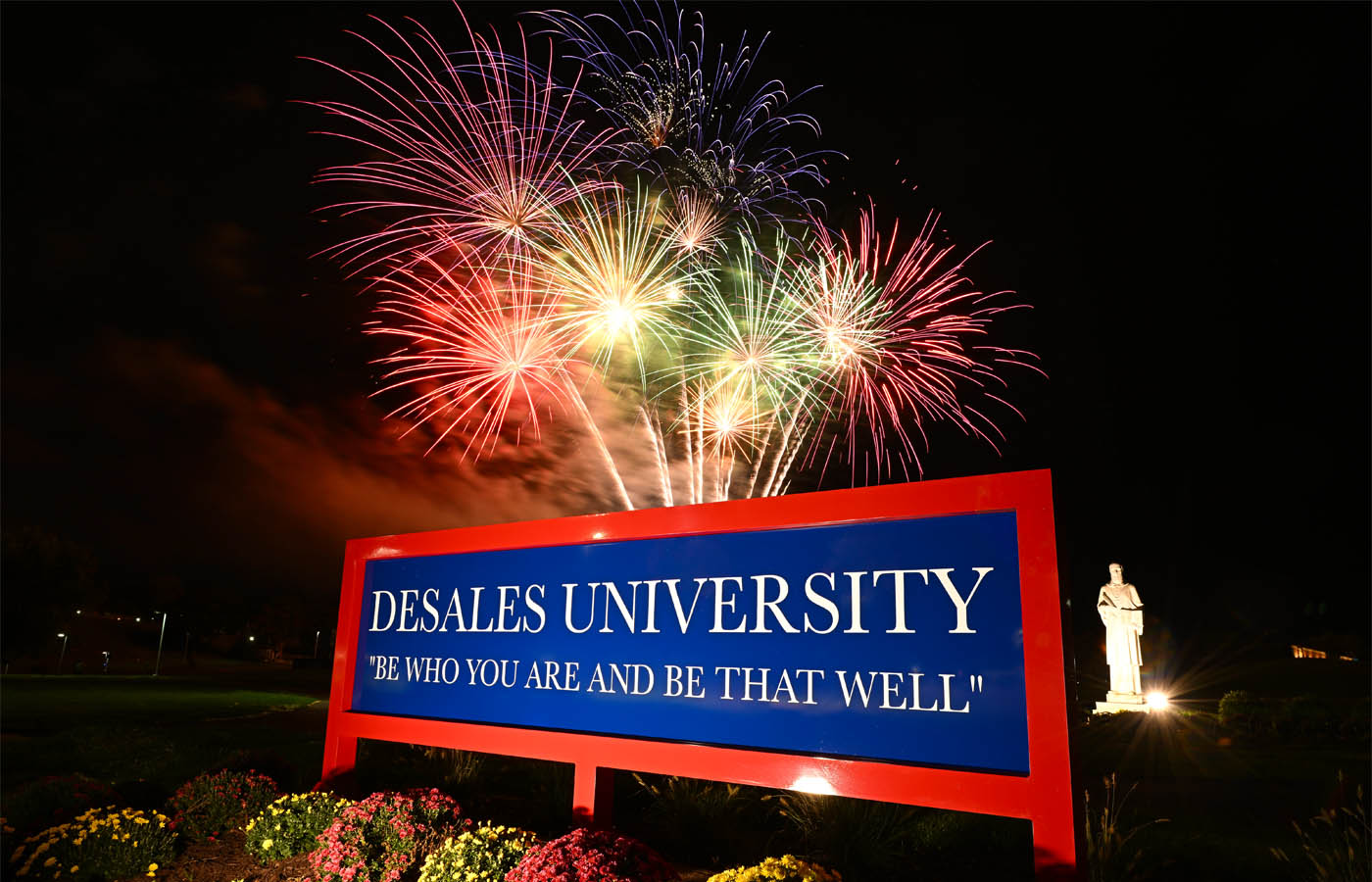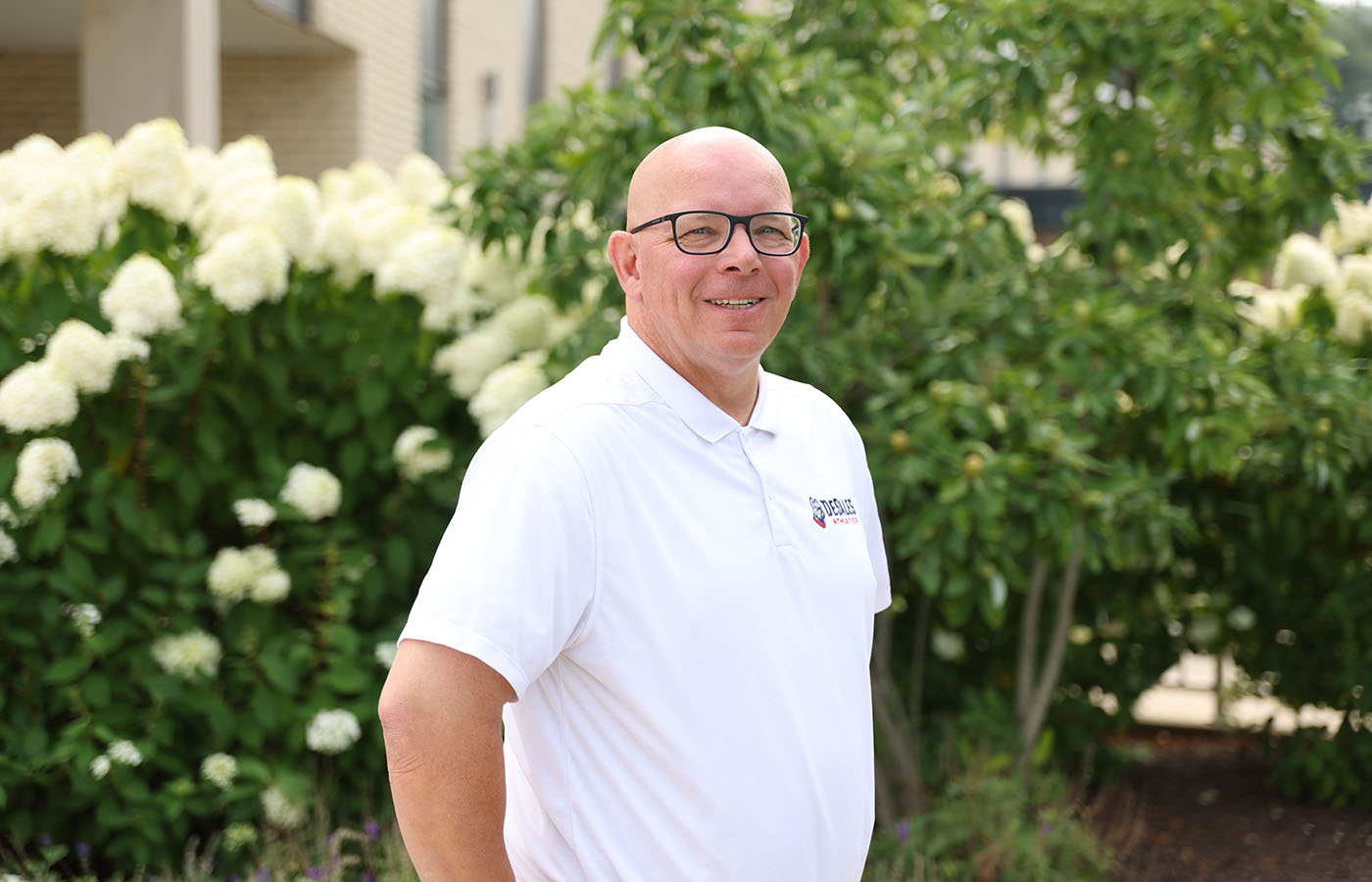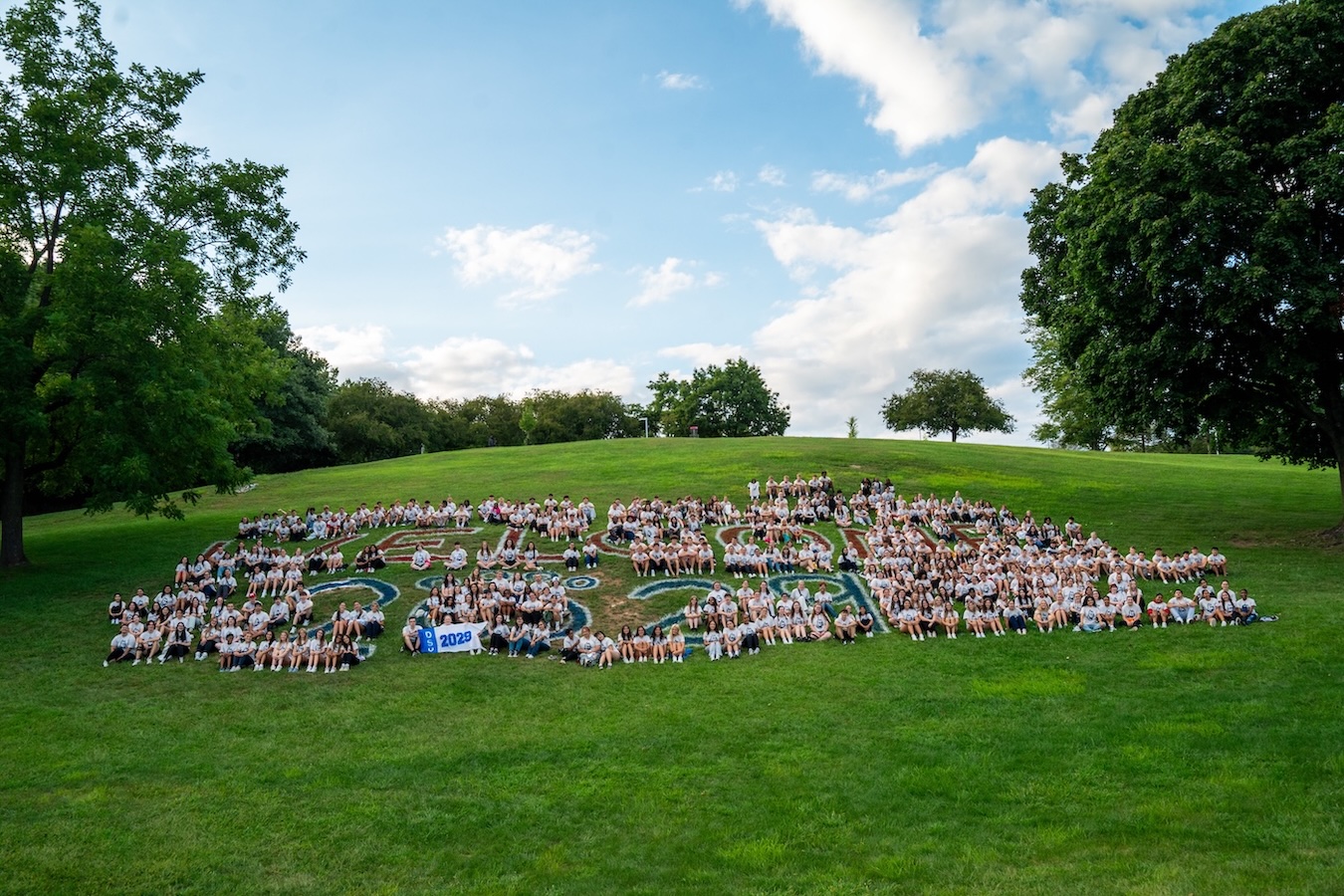Kraft Lecture Addresses Technology, Faith, and the Future of Christian Life
Sister Ilia Delio, OSF ’77, Ph.D., doesn’t shy away from pondering the intersection between science and religion. She embraces it.
The endowed chair in theology at Villanova University and the author of more than 20 books, Sister Delio’s expansive career demonstrates a long history of expertise and curiosity in both realms of study.
That’s why at this year’s annual Joan & Deacon R. Wayne Kraft Memorial Lecture, held in Connelly Chapel, she discussed Pierre Teilhard de Chardin—the French Jesuit priest, philosopher, and paleontologist—and his belief that technology is the natural evolution of thought, consistent with Christian tradition.
“Evolution is not the background to our story, it is our story. Nature and matter have always been technological. That’s the bottom line of evolution. Life seeks more life, even through death and destruction. We humans are in evolution and that’s something from the point of Christian faith we haven’t dealt with.” -Sister Ilia Delio, OSF ’77, Ph.D.
According to Sister Delio, there are several fundamental truths in life, but the most important is that we are creative beings. She pointed to the theory of quantum entanglement that asserts the world is comprised of interconnected energy, so our actions influence both our reality and how we move forward as a species. This connects with Teilhard's belief that God is less likely to be a physical man waiting for us in heaven, and instead the energy of love.
“Love is the core energy that unites,” Sister Delio said. “Love does not stay static. Love is dynamic and always seeking to grow. It’s the same with God. God seeks to grow in love by becoming part of our lives.”
If then, our goal is to “build up the body of Christ and become conscious of our divine vocation,” as Sister Delio emphasized, we must learn how to leverage the technology we develop throughout our evolution and use it to become closer to God.
Unfortunately, due to a lack of regulation and corporate greed, Sister Delio believes our current usage of technology falls short of its potential. She said that rather than seeking unity and a sense of wholeness through technology, we use it to numb ourselves, reinforce biases, and stunt our abilities to think and be creative. Therefore, she said, we must begin to question what defines us as humans and how we can safeguard our life’s purpose by using technology differently.
“AI is not our problem; we are the problem,” she said. “We have become undone and unraveled, and we must find ourselves anew in the energy of love.”
Commencing in 1995, the Kraft Lecture series commemorates the legacies of Joan A. and Deacon R. Wayne Kraft. Deacon Wayne Kraft was an adjunct professor of philosophy at DeSales who delved into the philosophy of Teilhard de Chardin, authoring four books on the subject. He was bestowed with an honorary doctorate of humanities in 1984, and, in 1988, received the esteemed DeSales Medal for his remarkable service as a Catholic layman.
Joan Kraft was a vanguard in church and civic affairs in the Bethlehem area. She was a leader of song, a pioneering women lector, and a devoted Eucharistic minister. Furthermore, she served on the pastoral team of her parish and achieved the distinction of being the first Catholic woman to volunteer as an associate chaplain at St. Luke’s Hospital, bolstered by her degree in pastoral care. The University conferred upon her an honorary doctorate in 1980 and the prestigious DeSales Medal in 2004.



